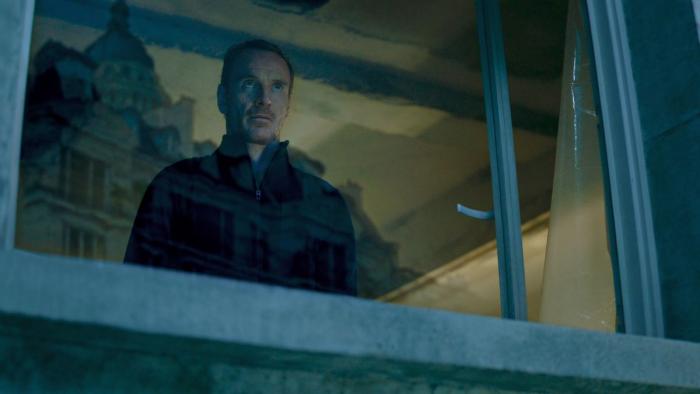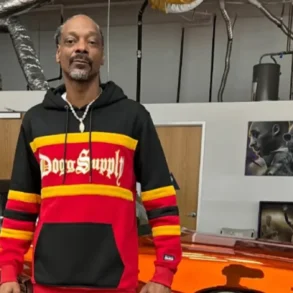
It’s tempting to call The Killer David Fincher’s purest exercise in style since his music video days. Coming as it does on the heels of Mank, the director’s most personal (his father wrote that script) and epic project, this simple but deliciously twisty thriller stars Michael Fassbender as a nameless assassin trying to kill some other nameless assassins before they kill him, wham bam and that’s about the gist of it. Structured in that vague video-game structure that every one of these movies that we’ve ever seen have been structured like—you start with the small baddies and you build your way up to the climactic battle with the Big Boss—The Killer, on its surface, feels like Fincher cutting loose and playing around. Reminding us what he’s capable of. (And yes, good lord what he is capable of—such style, such grace, Trent Reznor gives good bass.)
But the longer you stare unblinking at The Killer, the harder it stares back. And the more the emptiness underneath its eyes starts to feel like a feature, not a bug. Fincher’s relationship toward violence has almost always been thoughtful and fraught—from Seven to Zodiac to Mindhunter no director has charted a career as deeply entwined with unraveling the serial killer mythos and our obsessions thereabouts. Each one of those projects—as well as nearly all of the stuff in between, like Gone Girl and The Social Network and The Girl With the Dragon Tattoo—have felt in conversation with one another on the subject. Each one coming at our capabilities for cruelty from slightly different angles. And so to think he might suddenly deliver a John-Wick-style rah-rah salute to murder was unnerving.
Well fret not—The Killer is a steely dissection of sociopathy, not a celebration. Think of it in terms of how Paul Verhoeven’s Starship Troopers took the piss out of fascism by making a cheekily ridiculous and obscene propaganda film—The Killer is The Killer’s self-made propaganda. One which we watch unraveling substantially in every direction, but which he keeps pulling in toward his chest like pieces of a shattered vase, telling us over and over again about oh, what a pretty vase he has.
Every choice Fincher makes, when you step outside of it just a little and look back in, feels more daring than it does at first glance. The film begins with our titular nobody camped out in one of those empty lofts that we’re so used to seeing in these kinds of movies—ever since Lee Harvey Oswald took over his corner of the Texas School Book Depository we’ve made mental space culturally for these sorts of shooter’s perches. It turns out he’s staking out a penthouse target across the way, and as he tells us via narration—Fassbender’s narration being key to the film as a work of quicksand propaganda—this whole staking-out thing is a slow, methodical, and really rather boring process.
It’s not un-risky in this day and age to start your movie with an extended absence of action—especially, it seems of genuine import to be noted here, when your film has been financed by Netflix, a streaming service that measures cinematic worth in milliseconds of content consumption. Movies live and die by how long they keep eyeballs on them while there’s one billion other options one small button-push away. But that’s just what Fincher does—I didn’t keep precise count but this action-less beginning has to last a solid fifteen minutes, before anything arrives that could raise one’s heartbeat. We watch Fassbender watch people feed dogs, we watch him do a lot of yoga (and okay watching Michael Fassbender do yoga will admittedly raise some of our heartbeats, but for other reasons.) It’s all very Rear-Window-esque, only with the metaphor of that movie’s camera turned into the metaphor of a scope of a high-caliber killing-machine.
But mostly, we listen to Michael Fassbender talk. And talk. The man has his mantras which he repeats to himself, and to us, ad nauseam in order to keep his heart rate down. (There’s a recurring sight-gag of him checking his Fitbit monitor.) Deep wisdoms like “Trust no one” and “Stick to your plan.” It’s actually comical how banal his advice is—if they make you think of Jake Gyllenhaal’s weaponization of self-help aphorisms in Nightcrawler then I’d say that you’re definitely onto something.
But the most telling thing about them from my vantage point is the disconnect between our Killer’s bland instructions and their sideways results—nothing ever goes right; nothing is ever as simple as he’s insistently telling us it is. The Killer is two hours of Michael Fassbender’s character chasing down one mistake with another, all while he postures to us in the audience as the Cool Guy—it’s reminiscent of Brad Pitt’s Tyler Durden, but with that pornographic fantasy slightly soured and pathetic. It’s strained af.
From his purposefully forgettable outfits to the recurring gag about him using aliases from old sitcoms like Felix Unger and Ritchie Cunningham that recurs five too many times past the point of being funny anymore, Fassbender’s Killer is deeply uncool. He makes a Dad-adjacent Storage Wars joke, for god’s sake. His references reek of Patrick Bateman try-hard—he’s like a robot trying on a human suit. All while Fassbender’s uncanny physique, a thin skin of pale musculature stretched over an elongated skeleton, peeks out from under those silly bucket-hats like a ghoul’s.
Take for instance, the Tilda scene, as it will and should come to be known. Along our Killer’s winding path of muckery he’s led to the exciting “bedroom community” of thrilling Beacon New York (no fabulous James Bond destinations here), where one of the killers on his Kill Bill list awaits—“The Expert” as she is called. And when somebody earlier on in the film describes this woman as looking like “a Q-tip” those of us who noticed Tilda Swinton’s name in the credits nod knowingly to ourselves. And this is indeed the most Tilda Swinton that Tilda Swinton has ever been called on to be on-screen. Pale as a ghost with her white-blonde hair, in a fabulously expensive outfit eating expensive food and drinking expensive whiskey and speaking with her own fabulous Scottish accent, she is Alpha Tilda. Clever and witty and alien perfect.
And across from her in all her glory Michael Fassbender sits there silently, like a sod. There’s something of Ryan Gosling’s near-wordless Driver in Drive here, but in that you feel as if Michael Fassbender’s character has seen Drive and he is actively trying to be like that character. Fassbender makes it clear the effort that it’s taking out of him to sit there silently across from this fascinating woman—his performance threads a near impossible needle, between who he is telling us he is and who he is, between an absence of self and an elimination of one, and he nails it. Tilda calls him “no fun” and she ain’t kidding, but the thing is, he is funny—like a dog chasing its own tail is funny.
After all the entire quest that he finds himself on is due to his own failure, and at every turn everyone makes it clear to him that he really doesn’t have to keep at it—there are a million reasons why he can and should quit. We’re given the basic minimum as far as motive (more weight is given to John Wick’s dog), and it’s underlined over and over again that the revenge he seeks is pointless—most especially at the film’s conclusion, which comes up with about as mordant a joke about such things as could possibly be summoned out of thin air. Righteously dark, that one.
And yet our Killer keeps willing himself into an impossibility and bungling his way through. There’s something almost Silent Comedy about him in his deranged perpetual forward motion, if Buster Keaton had just been soaked in his own blood at the end. Ultimately, what we’re left with is the sheer amount of effort that masculinity takes. The emptying out of one’s self in service of the rictus of stoicism keeps peeking around The Killer’s corners and letting out a hard, maniacal cackle. This one’s for the self-appointed Jokers, the claimants of chaos and its agents, Fincher seems to be saying—the joke’s entirely on you.
‘The Killer’ screened at the 2023 New York Film Festival. It’s scheduled for theatrical release in the United States on October 27th, 2023, and will hit Netflix on November 10th.



